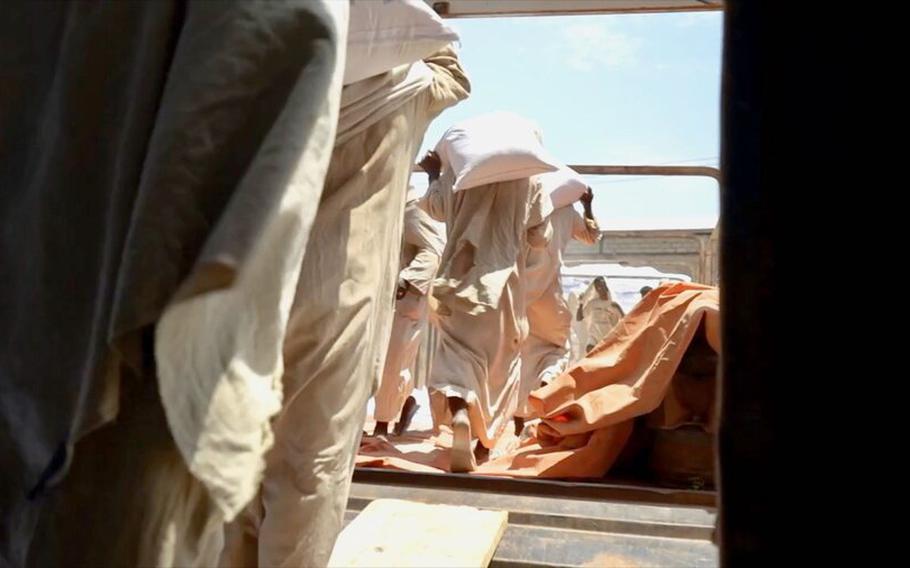
World Food Programme food assistance being loaded on to trucks in Port Sudan bound for hunger hotspots elsewhere in the country. (Abubakar Garelnebei/WFP)
PORT SUDAN (Tribune News Service) — Flooded and impassable roads have made it difficult for more than 50 trucks carrying an estimated 4,800 metric tons of food and nutrition assistance to across Sudan, World Food Programme (WFP) said.
The food and nutrition assistance, it said, are enough for at least 500,000 people.
The United Nations humanitarian agency (OCHA) says nearly 143,000 people in 12 of Sudan’s 18 states have been affected by the floods and 50 people killed.
In addition, at least 27,000 people have reportedly been displaced, amid fears that the extent of damage and number of people affected is likely being underreported as some of the worst flooding is in hard-to-reach conflict hotspots.
WFP, in a statement, said the rainy season is exacerbating the already devastating situation in Sudan, as floods force more people from their homes, increase humanitarian needs, and cut off communities from vital assistance.
Coupled to this, however, heavy rains have destroyed key bridges which has made it extremely difficult for aid convoys to pass through muddy, flooded roads.
The world food agency said it had planned to reach half a million people with assistance transported via the Tine border crossing this month, but aid trucks are currently stranded on the Chad side, with heavy rainfall making it largely impassable, some trucks have been stuck for up to two weeks or even one month.
WFP expressed concerns that fighting has, since late June, spread east across Sennar and Gedaref State and continues to intensify amid fears it could sever key routes for humanitarian assistance from Port Sudan to other parts of Sudan.
The situation, the agency says, is likely to also hinder access to WFP’s Kosti hub which is critical for aid deliveries across conflict lines to reach populations in White and Blue Nile states, the Greater Kordofan region, and parts of Darfur in Sudan.
Floods and heavy rains could also lead to the spread of waterborne diseases, like cholera and typhoid, which are dangerous for malnourished children and women, who are already bearing much of the fallout from the over one-year war.
WFP said although it has food ready for deliver to hungry people across various location of Sudan, continuous fighting makes it impossible to reach communities trapped in conflict hotspots.
A humanitarian ceasefire is urgently required to massively expand humanitarian access.
Ultimately, an end to the conflict is the only sustainable solution, the agency stressed, further noting that it is critical for the warring parties to leave the battlefield and show up at the negotiating table.
WFP said it urgently needs all border crossings into Sudan to open so that it is able to use every possible supply route to deliver urgently needed food and nutrition assistance to those in need.
This, it further said in the statement, includes opening the border crossing from Adre (Chad) into West Darfur, which was announced last week, and a formal agreement between South Sudan and Sudan to transport aid from the south into Darfur, Kordofan, and Blue Nile.
According to WFP, the planned Geneva peace talks would offer a vital opportunity for the international community to address widespread operational challenges and access impediments directly with the warring parties obstructing aid delivery.
(c)2024 the Sudan Tribune.
Visit the Sudan Tribune at www.sudantribune.com
Distributed by Tribune Content Agency, LLC.